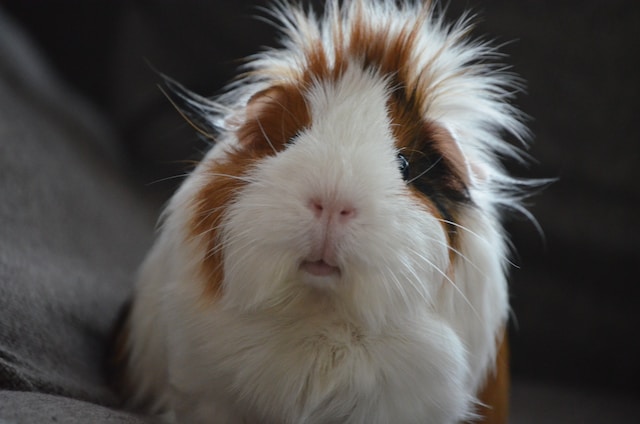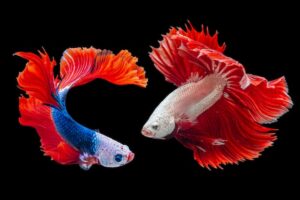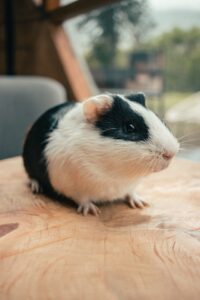
Guinea Pig Nutrition: What to Feed Your Furry Friend
Contents
- 1 Introduction
- 2 The two most important elements to consider when feeding a guinea pig are the type of food and its quantity.
- 3 Guinea pigs are herbivores, which means they eat mostly vegetables and grasses.
- 4 To ensure proper nutrition, it’s important to feed your guinea pig foods that contain enough vitamins and minerals.
- 5 When choosing a brand of food for your guinea pig, look at the ingredients list on the package.
- 6 There are many high-quality pelleted diets available for guinea pigs that you can choose from.
- 7 Commercial foods will always have more expensive than making your own homemade diet for your pet.
- 8 Read labels carefully and make sure you’re getting the best nutrition for your pet!
- 9 Conclusion
Introduction
If you’re a guinea pig owner, you know the importance of making sure your furry friend is eating healthy. It’s important to feed them in a way that will maximize their health and keep them from developing any health problems over time.
If you want to make sure your pet lives its best life possible, it’s important that you know what foods are good for them and which ones aren’t worth buying! In this post, we’ll discuss everything there is to know about guinea pig nutrition—from what foods they should eat and why, to how much of each food type they need every day.
The two most important elements to consider when feeding a guinea pig are the type of food and its quantity.
Guinea pigs are herbivores, meaning they only eat plants. This makes them unique among rodents and other small animals, which are typically omnivores or carnivores. Guinea pigs need to consume a lot of fiber in order to digest their food properly and stay healthy; this means plenty of grass and vegetables during the day (and hay at night).
They also need vitamin C, which helps support their immune system as well as promote healthy tissue growth throughout the body. Vitamin C is found in most fruits and veggies; however if you don’t want your guinea pig eating too many high-calorie treats like apples or oranges then you should add some vitamin C supplement powder into his diet daily!
Guinea pigs are herbivores, which means they eat mostly vegetables and grasses.
They have a digestive system similar to humans, so it’s important to feed your guinea pig a variety of foods.
If you’re looking for some inspiration for what to give your furry friend for dinner tonight, here are some good options:
To ensure proper nutrition, it’s important to feed your guinea pig foods that contain enough vitamins and minerals.
Vitamins are essential in the body because they help convert food into energy. They also aid in growth, development and maintenance of the body, as well as normal metabolism. Good sources of vitamins include vegetables, fruits and grains; these should be part of your guinea pig’s diet at all times!
When choosing a brand of food for your guinea pig, look at the ingredients list on the package.
This will tell you what is in the food and how much of it there is. You want to make sure that there are no fillers or additives that could cause harm to your guinea pig’s health. Additionally, it’s important to find out if the food has been tested on animals before buying it; some companies test their products on animals while others do not–you’ll want to know this so that you can pick one that aligns with your beliefs!
Finally: when evaluating these different brands of diets, look at their fiber content as well as sugar content (a high-fiber diet will help keep them regular).
There are many high-quality pelleted diets available for guinea pigs that you can choose from.
These foods come in a variety of forms, such as pellets or blocks, and they contain all the nutrients your furry friend needs to stay healthy.
The best food will be appropriate for the age and size of your guinea pig, so make sure to read the label carefully before buying it! It’s also important that any kind of pellet or block diet contains a variety of nutrients (such as fiber) so that your furry friend doesn’t get tired of eating the same thing day after day.
If this sounds like too much work for you–and who could blame you?–then consider getting something simpler like Mazuri VMG Complete Guinea Pig Diet Pellets ($7). These pellets have been specially formulated with vitamin D3 added during manufacturing; this ensures that even if it’s dark outside when feeding time rolls around (which could lead them being deficient), these guys will still get their daily dose without having any issues whatsoever!
Commercial foods will always have more expensive than making your own homemade diet for your pet.
As with any diet, there are pros and cons to each option. While homemade diets may seem like the more affordable option, this isn’t always true because it requires time and effort on your part to prepare all the ingredients yourself. However, if you have time available and enjoy cooking then making your own food might be cheaper than buying premade pet foods!
If you’re looking for something with less hassle than preparing homemade meals but still want an affordable option then consider supplementing your guinea pig’s diet with hay cubes or pellets instead of feeding them exclusively hay throughout the day (which can cause digestive problems).
Read labels carefully and make sure you’re getting the best nutrition for your pet!
When choosing a food for your guinea pig, look for one that has the following:
- A high-quality protein source. Meat and fish are good options, but you can also find high-protein foods made from soybeans, nuts and seeds.
- Fatty acids (such as omega 3s) to help keep their coats healthy and shiny.
- Fiber to promote regular digestion and keep them feeling full longer than they would if they were eating a low-fiber food dish all day long!
Conclusion
Guinea pigs are unique pets, and they require a special diet. If you know what food is best for your furry friend and how to feed him or her properly, then you can keep your pet healthy and happy for many years to come!



Average Rating